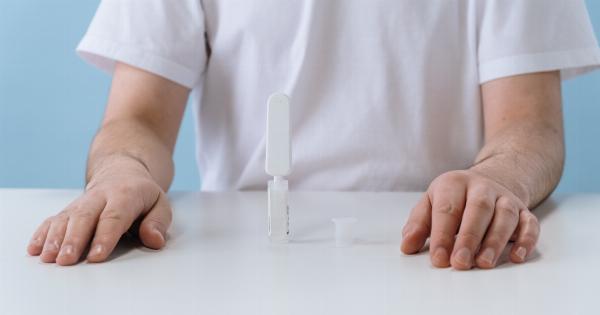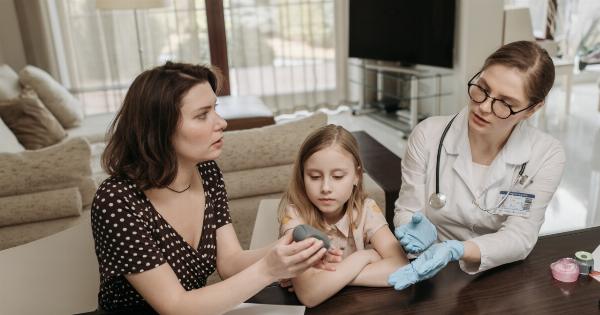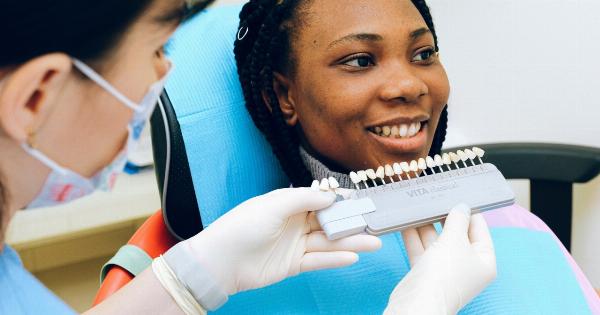Roche, a leading pharmaceutical company, has recently unveiled an innovative infection testing technology that promises to revolutionize the way diseases are diagnosed and treated.
This cutting-edge solution offers faster and more accurate results, reducing the burden on both patients and healthcare providers.
The need for improved infection testing technology
Infectious diseases continue to pose a significant global health threat, with millions of people affected each year. The ability to quickly and accurately detect infections is crucial for effective management and treatment.
However, traditional testing methods can be time-consuming, labor-intensive, and often yield inconclusive results.
Recognizing these challenges, Roche has invested heavily in research and development to create a breakthrough infection testing technology that tackles these limitations head-on.
How the new technology works
The groundbreaking infection testing technology developed by Roche leverages advanced molecular diagnostic techniques to provide accurate and timely results.
This innovative solution streamlines the process of detecting infectious agents, enabling healthcare professionals to make informed decisions swiftly.
At the heart of this technology lies the utilization of polymerase chain reaction (PCR) techniques, which amplify specific DNA or RNA sequences of pathogens in a patient’s sample.
The highly sensitive and precise nature of PCR allows for the detection of even low levels of infectious agents, significantly reducing false negatives.
In addition to PCR, the Roche infection testing technology incorporates automation and artificial intelligence (AI) algorithms. By automating several steps of the testing process, this technology minimizes human error and maximizes efficiency.
AI algorithms aid in data analysis, enabling healthcare professionals to quickly interpret test results and make accurate diagnoses.
Advantages of Roche’s infection testing technology
The introduction of Roche’s groundbreaking infection testing technology brings several notable advantages:.
- Improved accuracy: The new technology significantly reduces the chances of false-negative or false-positive results, ensuring that patients receive appropriate treatment.
- Rapid results: The streamlined workflow and automated processes enable healthcare professionals to obtain test results in a matter of hours, facilitating prompt decision-making.
- Cost-saving: By minimizing the need for repeat testing and unnecessary treatments, Roche’s infection testing technology helps reduce healthcare costs.
- Enhanced patient experience: With quicker and more accurate results, patients can receive timely treatment, leading to better health outcomes and reduced anxiety.
- Efficient resource utilization: The automation of multiple testing steps allows healthcare providers to allocate their resources more effectively, optimizing productivity.
- Broader pathogen detection: Roche’s technology can detect a wide range of infectious agents, including bacteria, viruses, and fungi, enabling comprehensive diagnostic capabilities.
- Adaptability: The infection testing technology can be easily integrated into existing laboratory workflows, making it accessible to healthcare facilities worldwide.
- Improved surveillance capabilities: The accurate and rapid detection of infections aids in monitoring and controlling disease outbreaks, thereby contributing to public health initiatives.
- Continuous innovation: Roche remains committed to ongoing research and development, ensuring that their infection testing technology evolves to address emerging infectious diseases.
- Collaborative approach: Roche actively collaborates with healthcare providers, researchers, and policymakers to improve testing methods and contribute to global healthcare initiatives.
Applications of Roche’s infection testing technology
The versatile nature of Roche’s infection testing technology makes it suitable for various clinical and non-clinical applications.
1. Clinical Applications:.
Roche’s infection testing technology can be employed in the diagnosis and management of a wide range of infectious diseases, including:.
- Bacterial infections
- Viral infections
- Fungal infections
- Sexually transmitted infections
- Respiratory tract infections
- Urinary tract infections
- Gastrointestinal infections
This technology also facilitates the monitoring of disease progression and treatment efficacy.
By assessing the presence and quantity of infectious agents, healthcare professionals can tailor treatment plans to individual patients, improving therapeutic outcomes.
2. Non-Clinical Applications:.
Beyond clinical settings, Roche’s infection testing technology can be valuable in non-clinical scenarios, including:.
- Surveillance and monitoring of infectious diseases in communities and regions
- Screening and testing in research studies and clinical trials
- Forensic investigations involving potential infectious agents
- Food and water quality assessments to ensure safety
The future of infection testing technology
Roche’s groundbreaking infection testing technology represents a significant step forward in revolutionizing the way infectious diseases are detected and managed.
With its inherent accuracy, efficiency, and adaptability, this technology has the potential to reshape healthcare practices globally.
As healthcare needs continue to evolve, Roche remains committed to driving further innovation in infection testing.
By collaborating with key stakeholders and leveraging advancements in molecular diagnostics, automation, and AI, Roche aims to enhance this technology’s capabilities and expand its reach to benefit more individuals and communities.
In conclusion
Roche’s introduction of groundbreaking infection testing technology marks a milestone in the field of molecular diagnostics.
With faster and more accurate results, this innovative solution will undoubtedly have a profound impact on the diagnosis, treatment, and prevention of various infectious diseases.






























